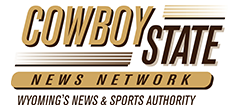Anglers all have different definitions of personal space. One fisherman’s comfortable distance may be felt as an intrusion by another. And unlike personal space at the office or at the store, this personal space isn’t just a six- or eight-foot bubble around that angler.
If you’re approaching another angler, watch which way he seems to be going. If a fisherman is moving downstream, his personal space probably includes the next few holes downriver. Likewise, if he’s working his way against the current, you’ll tick him off if you leapfrog him and start fishing just upstream of where he is. Don’t set up shop at the next likely riffle. If it’s possible, go far enough away from the other angler that you can’t see him anymore.
If you come upon a fisherwoman and are not sure which direction she’s moving, ask. If she’s going downstream, ask if it’s OK if you toss a line in some of the holes she’s already tried. But keep your conversation short. One of the reasons people go fishing is to get away from other humans.
If you’re working the waters and someone comes too close, politely let them know. Try not to be rude or sarcastic, no matter how peeved you are that your space has been violated. That other angler most likely isn’t trying to be a jerk; he just may not have the same sense of personal space you do.
If that doesn’t work, move on to another spot. You might find yourself a brand-new honey hole.
And here’s one I’ve been guilty of. When you pull up to your favorite fishing hole and see a vehicle with out-of-state plates, don’t be too quick to pass judgement. Everyone who pays the license fee is entitled to cast a line in Wyoming’s waters, no matter what state they call home. Keep in mind that the fuel, food and flies they buy while they’re within our borders help keep our economy afloat. And nonresidents pay a lot more for their licenses. All that money comes back to manage the wildlife you hunt and the fish you try to catch.
So mind your manners while you fling your flies.

